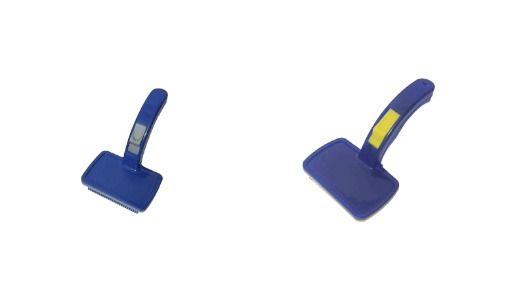Bringing a new dog into your home is an incredibly exciting time, but it also comes with a lot of questions. From basic care needs to training tips and health concerns, there’s a lot to consider when it comes to taking care of your furry friend. To help you navigate this exciting journey, we’ve compiled a list. Which will be your Comprehensive Guide to 50 New Dog Care FAQs
Your Comprehensive Guide to 50 New Dog Care FAQs – how to take care of a new dog

Your Comprehensive Guide to 50 New Dog Care FAQs – how to take care of a new dog
- What supplies do I need for my new dog?
• Essential supplies include food and water bowls, a comfortable bed, collar and leash, ID tags, grooming tools, toys, etc. - How often should I feed my dog?
• Most dogs do well with two meals a day, but consult with your veterinarian to determine the best feeding schedule for your dog’s age and breed. - What kind of food is best for my dog to eat?
• Choose a high-quality dog food that is appropriate for your dog’s age, size, and activity level. Your veterinarian can help you select the right food for your dog. - How much exercise does my dog need?
• Your dog’s needs for exercise vary depending on their breed, age, and general health. Try to get in between thirty and sixty minutes of exercise every day.. - How do I house train my dog?
• House training involves establishing a routine, rewarding good behavior, and supervising your dog closely to prevent accidents. Consistency and patience are key. - How do I teach my dog basic commands?
• Use positive reinforcement techniques, such as treats and praise, to teach your dog commands like sit, stay, come, and down. - What should I do if my dog exhibits unwanted behaviors?
• Address unwanted behaviors promptly with positive reinforcement training techniques and consider seeking guidance from a professional dog trainer or behaviorist if needed. - How do I socialize my dog?
• Introduce your dog to new people, animals, and environments gradually and positively to help them develop confidence and good social skills. - What are some enrichment activities for my dog?
• Provide your dog with mental stimulation and enrichment through activities like puzzle toys, interactive games, and training sessions. - How can I prevent separation anxiety in my dog?
• Gradually acclimate your dog to being alone, provide comfort items like toys and blankets, and practice short departures to help them feel secure when you’re away.
Your Comprehensive Guide to 50 New Dog Care FAQs – how to take care of a new dog
Your Comprehensive Guide to 50 New Dog Care FAQs – how to take care of a new dog
- How frequently should I visit the vet with my dog?
• Schedule regular veterinary check-ups at least once a year for vaccinations, preventive care, and overall health assessments. - What vaccinations does my dog need?
• Dogs usually require core immunizations against rabies, distemper, parvovirus, and adenovirus. Your veterinarian will recommend additional vaccines based on your dog’s lifestyle and risk factors. - How do I prevent fleas and ticks on my dog?
• Use flea and tick preventatives recommended by your veterinarian and regularly check your dog for signs of infestation. - What should I do if my dog gets injured or sick?
• Seek veterinary care immediately if your dog experiences injury or illness. Have an emergency plan in place, including contact information for an emergency veterinary clinic. - How do I groom my dog?
• Brush your dog’s coat regularly, bathe them as needed, trim their nails, clean their ears, and brush their teeth to maintain good hygiene and health. - How do I keep my dog safe in my home and yard?
• Pet-proof your home by securing hazardous items and areas, and ensure your yard is securely fenced to prevent escapes. - What should I do if my dog runs away or gets lost?
• Ensure your dog wears a collar with ID tags and consider microchipping them for permanent identification. Act quickly by contacting local shelters and posting flyers in your area. - How should I introduce strangers and other dogs to my dog?
• Introduce your dog to new people and animals slowly and positively, allowing them to approach at their own pace. - How should I respond if my dog exhibits aggressive behavior?
• Seek guidance from a professional dog trainer or behaviorist to address aggression issues safely and effectively. - How do I travel safely with my dog?
• Secure your dog in a crate or with a pet seat belt when traveling in a car, and ensure they have access to water and breaks during long trips. - How can I assist my dog in settling into their new house?
• Give your dog time to acclimate to their new environment by providing a consistent routine, plenty of love and attention, and a safe space to retreat to. - What should I do if my dog shows signs of anxiety or fear?
• Provide comfort and reassurance to your dog, create a calm and predictable environment, and consider using calming aids or supplements as recommended by your veterinarian. - How do I include my dog in my daily activities?
• Involve your dog in your daily routines by taking them for walks, including them in family outings, and spending quality time together. - How do I establish boundaries and rules for my dog?
• Consistently enforce rules and boundaries for your dog’s behavior, using positive reinforcement techniques to reward good behavior and redirect unwanted behavior. - How should I respond if my dog starts acting destructively?
• Address the underlying cause of destructive behavior, such as boredom or anxiety, by providing appropriate outlets for your dog’s energy and mental stimulation.
Your Comprehensive Guide to 50 New Dog Care FAQs – how to take care of a new dog

Your Comprehensive Guide to 50 New Dog Care FAQs – how to take care of a new dog
- How can I pick the correct food for my dog?
• Select a high-quality dog food that is appropriate for your dog’s age, size, and dietary needs, and consult with your veterinarian for recommendations. - How much food should I feed my dog?
• Follow the feeding guidelines on the dog food packaging, adjusting the portion size based on your dog’s activity level and weight. - Should I give my dog treats?
• Treats can be given in moderation as rewards for good behavior or during training sessions. Select nutritious, low-calorie treats to prevent overindulging. - What foods are toxic to dogs?
• Avoid feeding your dog foods that are toxic to dogs, including chocolate, grapes, raisins, onions, garlic, and xylitol. - How can I prevent obesity in my dog?
• Maintain a healthy weight for your dog by feeding them a balanced diet, providing regular exercise, and avoiding overfeeding. - How do I teach my dog to come when called?
• Use positive reinforcement techniques, such as treats and praise, to teach your dog to come when called, starting in a low-distraction environment and gradually increasing the difficulty. - How do I stop my dog from jumping on people?
• Ignore your dog’s jumping behavior and reward them for keeping all four paws on the ground. Teach an alternative behavior, such as sitting, to greet people. - How should my dog be trained to use a leash?
• Use positive reinforcement techniques to teach your dog to walk politely on a leash, rewarding them for walking calmly beside you without pulling. - If my dog tugs on the leash, what should I do?
• Teach your dog to walk politely on a leash by using training tools like a front-clip harness or head halter and rewarding them for walking without pulling. - How do I prevent my dog from barking excessively?
• Address the underlying cause of excessive barking, such as boredom or anxiety, by providing mental stimulation and training your dog to bark on command and be quiet on cue. - How do I keep my dog’s teeth clean?
• Brush your dog’s teeth regularly with a dog-specific toothbrush and toothpaste, offer dental chews or toys, and schedule professional dental cleanings as needed. - How often should I bathe my dog?
• Bathe your dog as needed, typically every 4-6 weeks, using a mild dog shampoo and warm water. Refrain from overbathing since this can deplete the skin’s natural oils. - How do I trim my dog’s nails?
• Use sharp, quality nail clippers designed for dogs and trim your dog’s nails carefully, avoiding the quick. If you’re unsure, ask your veterinarian or a professional groomer for guidance. - What should I do if my dog has fleas or ticks?
• Use a veterinarian-recommended flea and tick treatment to eliminate infestations, and regularly check your dog for parasites. - How do I check my dog for signs of illness or injury?
• Regularly inspect your dog’s body for lumps, bumps, cuts, or signs of discomfort, and seek veterinary care if you notice any abnormalities.
Your Comprehensive Guide to 50 New Dog Care FAQs – how to take care of a new dog
Your Comprehensive Guide to 50 New Dog Care FAQs – how to take care of a new dog
- How do I keep my dog safe around other dogs?
• Supervise interactions between your dog and other dogs, and intervene if necessary to prevent conflicts. Avoid off-leash areas if your dog has a history of aggression or fearfulness. - What should I do if my dog gets into something toxic?
• Contact your veterinarian or a pet poison control hotline immediately if your dog ingests something toxic, and follow their instructions for treatment. - How can I keep my dog in the yard when he tries to escape?
• Secure your yard with a fence that is tall enough to prevent escapes, and supervise outdoor time to prevent digging or jumping over the fence. - What should I do if my dog shows signs of overheating?
• Move your dog to a cool, shaded area, offer water to drink, and apply cool water to their fur and paws. Seek veterinary care if your dog’s condition does not improve. - How do I keep my dog safe during hot weather?
• Provide access to shade and plenty of fresh water, avoid exercising in extreme heat, and be mindful of hot pavement that can burn your dog’s paws. - How do I help my dog adjust to a new routine?
• Introduce changes to your dog’s routine gradually and positively, allowing them time to adapt to new schedules and activities. - What should I do if stress or anxiety attacks my dog?
• Provide comfort and reassurance to your dog, create a calm and predictable environment, and consider using calming aids or supplements as recommended by your veterinarian. - How do I include my dog in family activities?
• Involve your dog in family outings, vacations, and celebrations, and include them in activities like hiking, camping, and picnics whenever possible. - What should I do if my dog experiences fear or phobias?
• Gradually desensitize your dog to the source of their fear using positive reinforcement techniques and seek guidance from a professional if needed. - How do I ensure my dog feels loved and secure in their new home?
• Provide plenty of love, attention, and affection to your dog, create a predictable routine, and establish a strong bond built on trust and mutual respect.
Your Comprehensive Guide to 50 New Dog Care FAQs – how to take care of a new dog
Your Comprehensive Guide to 50 New Dog Care FAQs – how to take care of a new dog
Remember, Your Comprehensive Guide to 50 New Dog Care FAQs offer general insights, individual dogs may have unique needs and temperaments. It’s essential to consult with breeders, trainers, and veterinarians for specific guidance based on the dog’s individual characteristics.
Conclusion, Your Comprehensive Guide to 50 New Dog Care FAQs”
Taking care of a new dog is a rewarding and fulfilling experience that comes with its own set of challenges and responsibilities. by addressing your comprehensive guide to 50 new dog care FAQs, you can ensure that your furry friend receives the love, care, and support they need to thrive in their new home. Welcome to the wonderful world of dog ownership!
Please Note that the care and maintenance of your pets and its inhabitants will depend on the specific species you choose. Always seek advice from experienced hobbyists or pet specialists to ensure the well-being of your Pets ( visit our ecommerce website thebrreed.com)
Thank you for reading our blog Your Comprehensive Guide to 50 New Dog Care FAQs .






